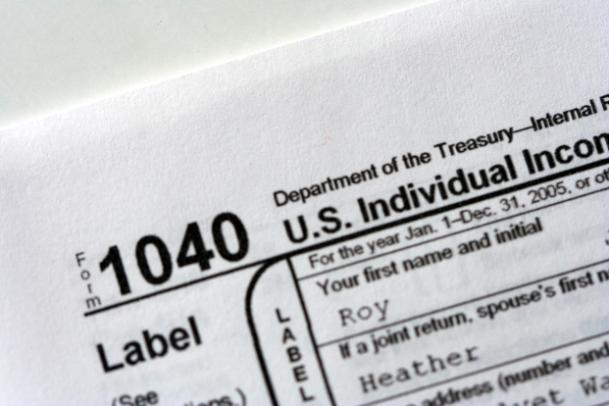Tax Problem Resolution – See administrative-appeals-tax-court-litigation
SCOTTSDALE TAX LAW ATTORNEY
(picture)
Phoenix
Your tax issues may start with a Notice from the IRS that it wishes to “review” your tax return. Or you may receive an IRS Notice that states you owe taxes or that your tax return has been changed by the IRS. Or you may have had a knock on your door and a card left from an IRS agent or officer. Without careful and knowledgeable assistance in responding to such encounters or correspondence, you could unintentionally turn a quick response into several years of audit and substantial tax, penalty, and interest. McFARLANE LAW – A Tax Law Firm can assist you in your initial response. We have the knowledge and experience to give you the needed direction, or handle your audit, so you have as favorable a result as possible under the circumstances.
Remember that the IRS and the ADOR have their attorneys and tax law experts, and it is important you have professional assistance, too; both to insulate you from direct contact with the Revenue Agents and Revenue Officers; but also to correctly guide you through the thicket of IRS policies, procedures and rules that are foreign to taxpayers, some CPAs, and most attorneys. One wrong answer or failure to respond in a timely manner to Notices and requests can result in significant tax and/or penalties determined against you. Our tax lawyer can chart a strategic course through the complicated tax issues, represent you before the IRS or ADOR (or associate competent CPA assistance), and reach a reasonable resolution to your tax problems.
We assist businesses and high net worth individuals in all aspects and issues with the IRS. If you experience a business audit or a personal audit, you have certain taxpayer rights such as the right to appeal a Revenue Agent’s determination or a Revenue Officer’s collection action. If you missed communication with the IRS and it has sent you a Notice of tax due, you have certain rights to review and/or appeal that collection action. If you cannot obtain a reasonable resolution to your issues with the Office of Appeals and the Appeals Officer, you or your business has the right to petition the Tax Court for an unbiased review by a Tax Court Judge.
Our Phoenix, Arizona, based attorneys represent high net worth individuals and businesses across the country in their IRS controversies. We receive referrals from CPAs and other tax professionals who are unable to represent their clients beyond a certain stage with the IRS. We are renowned as competent tax attorneys and have a good record and notoriety with the Revenue Agents, Revenue Officers, Appeals Officers, District Counsel attorneys, and Tax Court Judges who we have interacted with for the past 26 years.
Office of Appeals: What Is It and Why Is It Important to My Tax Problem Resolution?
The IRS has established an Office of Appeals to review disagreements between taxpayers and the IRS administrative level agents (Revenue Agents who examine tax returns; and Revenue Officers who take collection actions to collect tax liabilities). There are Appeals Offices located in various cities around the country. McFARLANE LAW – Your Tax Law Firm represents taxpayers in any of these Appeals Offices. If you disagree with a Revenue Agent’s or a Revenue Officer’s decision, make sure you timely contact us so we can apprise you of your taxpayer rights, including your right to appeal the IRS decision. Importantly, there are specific response dates and time limitations that if not met, will preclude your ability to pursue a reasonable resolution.
The Office of Appeals was formed by the RRA Act of 1998 to provide a non-biased, impartial and independent review of a taxpayer’s contested issues. Taxpayers, or their counsel, may negotiate the resolution of federal tax disputes that arise from an IRS audit or from collection action (levy, garnishment of wages, liens, asset seizures, etc.), or other adverse IRS determinations (denial of requested relief such as innocent spouse, offers in compromise, penalty abatement, and trust fund recovery penalty issues). Appeals can also arrange for a payment plan such as an installment agreement, a lump-sum payment, or uncollectible account status.
Appeals Officers are often previous collection officers. They are normally CPAs and sometimes even attorneys. Appeals Officers are some of the highest trained personnel in the IRS. They are skilled negotiators and are well versed in tax law and IRS procedures. It is highly recommended that you have your hired tax attorney at your side when you interact with the Office of Appeals.
An Appeals Officer’s job is to review the facts of the case and the legal issues brought before them in light of the government’s arguments. In Tax Court litigation matters, they weigh the hazards of litigating the issues and arrive at a determination that may set well with the parties, or may set them off to Tax Court.
At McFARLANE LAW -Your Tax Law Firm, we have 29 years of handling issues before the Office of Appeals. We know and have interacted with many of the Phoenix, Las Vegas, Dallas, Denver, Seattle, and Laguna Nigel Appeals Offices. That experience in successfully handling appeals cases, that familiarity with and personal relationships with the Appeals Officers, and the knowledge of the complex tax procedures allows us to competently and efficiently represent you before the Office of Appeals.
Do I Want To Spend More Time and Money Appealing an Administrative Decision?
There are several benefits of seeking appeals review of administrative actions or determinations, a few of which are the following:
- There is a strategy to having the Office of Appeals review your case, as Appeals Officers have more discretion in their ability to resolve issues short of going forward to Tax Court. At the Revenue Agent and Revenue Officer level, the agents and officers must follow the Internal Revenue Manual and their managers will restrict their discretion in their handling of issues. So at the Appeals Office level, there is a benefit of broader discretion to resolve a taxpayer’s case. Of course, there is still policy, procedures, and other guidelines that must be followed by the Appeals Officers, so it is recommended that tax counsel be engaged to vigorously and zealously defend your interests, arguments, and procedural strategy.
- Another benefit is time management. It normally takes several months for a case to be transferred from examination (i.e., audit) or collections to appeals. During this interim period, the case (including collection action) is normally put on hold, as jurisdiction lies with the Appeals Office. This period of time can be constructively used by you and your counsel to prepare for the Appeals conference, to accumulate funds for greater bargaining power, to make monthly “voluntary payments” that establish a history of cooperation and good faith efforts to comply with the federal tax rules and regulations, and to strategize before the appeals conference takes place. We at McFARLANE LAW – A Tax Law Firm are masters at manipulating the allowable time management opportunities.
- Another benefit is to remove a taxpayer’s case from an unreasonable revenue agent or an overly aggressive collection officer. Sometimes taxpayers try to handle cases on their own and cannot resolve their case in a reasonable or acceptable manner. As a result, a bad audit determination or an aggressive collection action on the part of the IRS and ADOR continues. Tempers become short on each side of the issue. There is an important move a taxpayer can make to have an experienced tax attorney intervene in the case. Even though late in the game, our attorneys are efficient and effective in unwinding wrong moves, toning down an otherwise contentious case; and they put the matter on track to a workable, acceptable resolution. In bad audits, we have means to get review of unagreed issues. If a collection officer is unwilling to participate in a workable resolution, an appeal of the issue can be taken to Appeals. At Appeals, not only can the issue be resolved, but a workable payment plan can be put in place.
The most important aspect of the appeals process is an understanding of the process itself and the presentation of a prehearing memorandum to frame the issues. You do not want to go into a blind cave without a guiding light. A tax attorney can best analyze the timing for requesting an appeals conference, to prepare the legal argument citing case law and procedure, and to attend the conference and negotiate the deal. If taxpayer seeks an alternative payment plan on any tax liability determined to be due at the appeals level, then a financial statement package must also be submitted prior to the appeals hearing. It is recommended that you engage a tax attorney to handle the appeals conference and the over-sight of the financial statement package. It is best to insulate the taxpayer from the appeals officer.
At McFARLANE LAW – A Tax Law Firm, we can formulate a strategic plan to obtain the best possible results and keep your tax liability to a minimum. After decades of dealing with Appeals Officers in Phoenix, San Francisco, Los Angeles, Fresno, and other offices across the country, we have the valuable working relationships with the Appeals personnel needed to obtain the best results for your particular case.
Negotiating With the IRS on Your Behalf
Filing a tax appeal or protest is a way of forcing the IRS to negotiate with you. The government does not like to spend time in litigation and is often willing to negotiate with the taxpayer. Unlike an individual taxpayer or CPA, Mr. McFarlane has the experience and ability to take your case as far as it needs to go — to the U.S. Tax Court if necessary.
Our lawyers provide a layer of insulation between you and the IRS. If you represent yourself before an IRS Revenue Agent or Officer, you could end up giving the IRS information that could result in a significant tax liability — or even criminal charges. Only an attorney can protect you under the umbrella of the attorney-client privilege.


